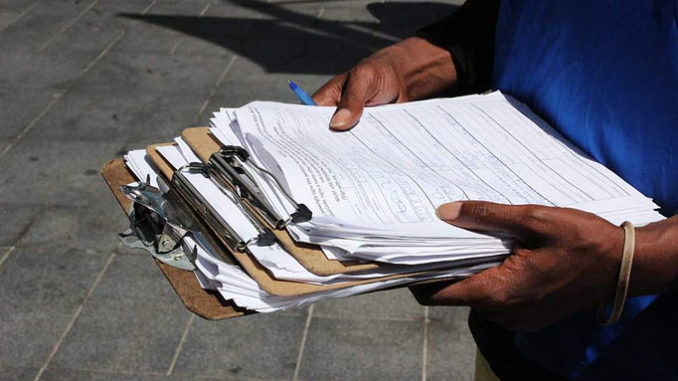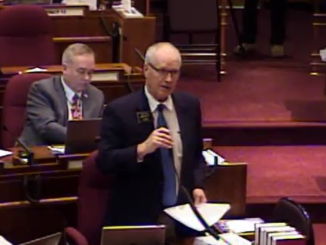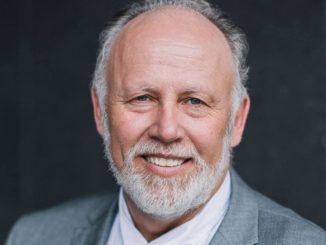
One of the interim legislative studies to come out of the recent North Dakota Legislative Session is the "Initiated and Referred Measure Study Commission". This was the result of Senate Bill 2135 and says the commission "shall undertake a comprehensive study of the initiated and referred measure laws of North Dakota."
The 19 member commission is comprised of the following:
"a. One individual appointed by the chief justice of the supreme court, who shall serve as the commission chairman;
"b. Three members of the house of representatives appointed by the majority leader of the house of representatives, and three members of the senate, one of whom must be a member of the minority party, appointed by the majority leader of the senate;
"c. One individual appointed as a nonvoting member by the secretary of state;
"d. Seven citizen members appointed by the governor, who shall provide public notice of available citizen positions on the commission and establish a procedure for submission of applications. One of the seven must be a member of an association that represents employees and their interests;
"e. One individual appointed by the greater North Dakota chamber;
"f. One individual appointed by the North Dakota newspaper association;
"g. One individual appointed by the North Dakota farm bureau; and
"h. One individual appointed by the North Dakota farmers union."
The seven "citizen members" mentioned were appointed by Governor Doug Burgum last week. They are:
1. Nick Archuleta of Mandan (President of North Dakota United)
2. Ellen Chaffee of Bismarck (Former President of Valley City State and Mayville State)
3. Kirsten Diederich of Fargo (Former Chair of ND State Board of Higher Education)
4. Robert Hale of Minot (Attorney, Entrepreneur)
5. Sara Meier of Carson
6. Jonathan Sickler of Grand Forks (Attorney for Advanced Engineering and Environmental Services, Inc.)
7. Conner Swanson of Fargo (District 21 Republican Chairman)
There are four key areas – "among other subjects" – that will be studied:
"a. The process and cost of placing initiated and referred measures on the ballot and campaigning in support of or opposition to ballot measures in North Dakota; "b. The processes used to place initiated and referred measures on the ballot in other states;
"c. Whether any provision of the state constitution or state law relating to initiated or referred measures should be amended. If an amendment is warranted, the commission shall prepare a draft resolution to amend the constitution or a draft bill to amend the state law for consideration by the next legislative assembly; and "d. The effect of out-of-state funding on the initiated and referred measure process and whether limits on out-of-state funding are necessary." The initiated and referred measure process is deeply entrenched in North Dakota history. It is enshrined in Article III of the State Constitution:
"Section 1. While the legislative power of this state shall be vested in a legislative assembly consisting of a senate and a house of representatives, the people reserve the power to propose and enact laws by the initiative, including the call for a constitutional convention; to approve or reject legislative Acts, or parts thereof, by the referendum; to propose and adopt constitutional amendments by the initiative; and to recall certain elected officials. This article is self-executing and all of its provisions are mandatory. Laws may be enacted to facilitate and safeguard, but not to hamper, restrict, or impair these powers."
However, the process has come under scrutiny over the years with measures relating to the abolishing of property tax, the Fighting Sioux nickname, and the most recent– Marsy’s Law and Medical Marijuana. Needless to say, it’s especially unpopular with some legislators.
Things seemed to finally come to a head though with passage of the Medical Marijuana measure known as the "Compassionate Care Act" or "Measure 5". Those drafting the measure failed to decriminalize Medical Marijuana. It became a hot-button topic during the Legislative Session as lawmakers made changes to it through Senate Bill 2344.
As with most issues, there are a variety of opinions on the subject of initiated and referred measures. Some think "it ain’t broke, so don’t try fixing it". Many feel it needs reform. And others feel the process is direct democracy and should be eliminated altogether.
I think it’s safe to say that it’s unlikely that the entire process will be eliminated. Nor is it likely to remain as it is now. So, perhaps the bigger question will be what kind of reform will result from the study?
In all likelihood, the next Legislative Session is likely to bring the most debate on two main fronts.
First, whether to raise the requirements relating to the number of signatures needed to qualify for placing an issue on the ballot.
Second, whether strict limits need to be placed on out-of-state funding that comes into the state in an effort to influence the outcome of ballot measures.
Perhaps the greatest reform that could be made is one that was suggested by North Dakota Watchdog Network’s Dustin Gawrylow. His idea is that sponsoring committee’s for initiated measures should be provided access to Legislative Council. For those not familiar with the legislative process, Legislative Council is a nonpartisan organization that serves a variety of purposes. Among those purposes is to craft legislation for legislators.
Utilizing Legislative Council to assist sponsoring committees in crafting their initiated measures can only be a positive from my perspective. Doing so would likely prevent the level of contention that was experienced with Measure 5 and SB 2344. Not to mention the savings in time, energy, and taxpayer money.
I have to admit that this issue of initiated and referred measures has been a tough one for me over the years. I am not a fan at all of direct democracy. But I finally came to the conclusion that North Dakota’s initiated and referred measure process has its own set of checks and balances. Whether it’s a sponsoring committee, signature requirements, filing deadlines, verification processes, etc.; the process is not an easy one.
Furthermore, in a very real way, the process can be a last resort that the people can turn to when their elected officials are not responding to the wishes of their constituents. Which, unfortunately, is the very reason some legislators would love to see it done away with or, at the very least, made to be nearly impossible to utilize for the average citizen.
We would do well to remember the words of George Washington when he warned against "unprincipled men" that would be "enabled to subvert the power of the people and to usurp for themselves the reins of government." Sources:
1. http://www.legis.nd.gov/constit/a03.pdf
2. http://www.legis.nd.gov/assembly/65-2017/documents/17-0399-10000.pdf
3. http://www.legis.nd.gov/assembly/65-2017/bill-video/bv2135.html
4. http://www.inforum.com/news/4281361-north-dakota-governor-names-members-study-ballot-measures
5. http://avalon.law.yale.edu/18th_century/washing.asp





